- Home
- Barbara Kingsolver
The Lacuna Page 10
The Lacuna Read online
Page 10
It's a strange way. Being a servant, making a bad wage, that is no puzzle. All the richest men in Mexico were once lifted from the cradle by servants. But they all drink from the same water jar that fills the master's glass, and they use the same chamber pot, still warm from the piss of the patron. In Mexico nobody ever thought to keep those streams flowing separately.
April 17
School is closing two weeks for Easter holiday. Then comes the end of the term soon, and summer. Most of the boys will go home, but not all. Some have to stay for remedial maths and repeating Virginia history in the sweat of July. Living here in the sock-stinking dormitory, and not with Father. He clearly explained that, in his letter about coming to visit while school is closed for Easter holiday. That will be swell, he says, a visit with old Dad. Swell enough for two weeks, not the whole summer.
Nothing here counts for anything now but Saturdays. Going to the market with Billy Boorzai. The rest is just coasting with half-closed eyes through another week.
May 3
Father's explanations made no mention of a lady. She must have cleared out of his apartment in a hurry, to make way for the Easter visitor. On the Q.T., Father is putting on the feedbag with a dame. Dust-colored stockings hang like cobwebs on the bathroom radiator, a lipstick winks like gossip on the bureau. Why would he hide her? Does he not know about Mother and her swains? He should listen through her wall some night, if he thinks his son is unacquainted with bedroom jolly-ups and pig fights.
Or he would lose some bargaining score if the Dame is reported back to Mexico. He and Mother are still not divorced because of the Mexican paperwork. "Divorce," he pronounces like a taste of soup with too much salt. Her name, he says like the Lord's taken in vain. Sometimes he says "Mexico," and the word has nothing in it at all. A wall with no colors painted on it.
May 5
A Trip to the Museum with the Father Figure. The weather has gone from freezing to broiling, with some talk of cherry blossoms in between. People on the trolley press against you in a crush, men in white linen suits, girls in sailor dresses and felt turbans. The smell of perspiration is different here. Cortes could write about that also: Most Excellent Empress, the sweat of the Northern People has a redolent stench. Maybe because of so many layers of clothes. Father's white suit hangs limp from his shoulders, wilting by the minute, like the moonflowers in the garden in Isla Pixol.
Smith Sonian is the name of the museum, a brick castle containing the stuffed, dead skins of every species but our own. Why not a few humans too? Father laughed at that one, like a man in some kind of a show, with an audience. His mood has shifted. Now he seems to take his son as a joke, rather than a serious offense. The museum had rooms of things from Tenochtitlan and other ancient sites of Mexico, fabulous artworks in gold that Cortes did not manage to carry off. Now in Washington, instead.
On the ride back to Father's apartment the trolley passed a long park, a row of warehouses, and then the most amazing spectacle: a city of tents and shacks roiling with people. Cooking fires, children, laundry hanging on lines, like a Mexican village of the very poorest kind set down in the middle of Washington City, surrounded by office buildings. A hand-lettered sign said: BONUS EXPEDITIONARY ENCAMPMENT. The American flag hung about in multiples over the shacks like laundry, blending in with the laundry really. The flags were as sun-faded as the upside-down trousers on the lines. The size of the camp was astonishing, a whole nation of beggars arrived in the capital. "That lot," Father spat through his moustache. "They've run their hobo jungle all the way down Pennsylvania. I have to pass through all that to get to work every morning."
A woman in a headscarf held up a naked baby toward our trolley. The baby waved its arms. A hobo jungle is unlike other jungles, where monkeys howl through the leafy air. "What do they all want?"
"What does anybody want? Something for nothing acourse." In that moment Father sounded like Bull's Eye.
"But why so many of them? And all the flags?"
"They're war veterans. Or so they say, because vets are entitled to a soldier's bonus. They want their bonus."
Ragged men stood at military attention every few meters, like fence posts all along the edge of the camp facing the street. Veteran soldiers, you could tell it from the placement of feet and shoulders. But their eyes searched the passing trolley with a terrifying hunger. "They've been here all week? What do the families live on?"
"Shoe leather soup, I'd say."
"Those men fought in France, with mustard gas and everything?"
Father nodded.
"We studied the Argonne. In Military Strategy. It was very bad."
Another nod.
"So, can't they get their money now, if they fought in the war?"
"I'd have been there too, in the Argonne," he said, suddenly turning pinkish, "if I could have been. Did your mother tell you I wouldn't fight in the war?"
A subject to steer around. "What's the soldier's bonus supposed to be?"
Surprisingly, Father knew the answer: $500 a man. He is a bean counter for the government. Five hundred bucks for risking a life in the war, so they could begin a new one here. Congress turned them down, decided to pay out the bonus later when these men are old. So they've come here from everywhere, wishing to take the matter up with the president.
"Does Mr. Hoover mean to meet with them?"
"Not on your life. If they want to talk to him, they better use the telephone."
May 14
Going with Bull's Eye to the market, that first time, was like Mother's first cigarette in the morning. Now every minute is a long piece of waiting, fidgeting out the minutes, pecking the desk, trying to think of something else until Saturday. Living in dread of not being asked again. On Friday nights the boys raise a cloud of stink in the barracks, throwing dirty drawers in satchels to get ready for the weekend, and then they fall down asleep. Leaving only the sound of one cricket ratcheting, a slant of puny moonlight. An hour or two for thinking: Billy Boorzai. Will he ask tomorrow? Or not?
Who cares. A person could prowl the library instead, in peace for once. Find some book that's better than noisy K Street. Keeping up with that big rough-elbowed dodger is worse than American football. It takes forever to get anywhere, Bull's Eye knows every third fellow he sees, not just boys but men of all sorts. And then has to renew the acquaintance with shoulder jabs and insults while the tagalong stands watching, like a pet dog. What does it matter if he asks or not?
June 17
The barracks have emptied; almost all the boys went home for summer, collected by servants in fancy carriages or mothers in horse-drawn taxis. It was entertaining to see which ones were rich or not. They all act like imperial kings when the parents aren't here.
Tomorrow begins a real job, for pay. Pearl diving, Bull's Eye calls it. Washing dishes in the mess hall. Father arranged it to cover board over the summer. But this afternoon, nothing yet to do in the empty barracks but take out every pair of pants from the foot locker and fold it up again. Or sit on the bed with The Odyssey. Until the head of Bull's Eye appears around the door. All ears and smile, the half-bit haircut. "Heya bookworm. Too busy lollygagging, then?"
"Too busy for what?" The book claps shut.
"Noodle juice and cookies with Mrs. Hoover. Whatcha think, for what? An ankle excursion."
"K Street?"
The smile disappears because the whole boy disappears. The Odyssey can be reopened to any page, it doesn't matter which. And then he is back, that grin. The scion of a ruined family, delighted with himself. This hurts, an ache in the groin, wanting so badly to see that smile and follow it somewhere. It keens like Mother waiting for the next cigarette. That is how she loves men, too. It must be. But in this case, can't be.
"What doesn't kill you," Bull's Eye likes to observe while scrubbing pots in the mess, "will make you piss on your shoes."
June 28
President Hoover asked the treasury secretary for a nickel to telephone a friend.
Secretary
Mellon said, "Here's a dime. Phone both of them."
According to Bull's Eye, two million Americans are on the road. Half are probably just boys, not lucky enough to scrub pots for three squares and a plunk. Or farmers. Radio repairmen, teachers, nurses, or they finished school and no job anywhere. "It gripes my soul, truly it does," says Bull's Eye. He is steamed about the relief bill passed by the Congress, then knocked right down by the president because it's an Unexampled Raid on the Public Treasury. That was the news headline. Hoover says it's no crisis, only depression, everyone down in the dumps feeling sorry for themselves. If the gloomy people would buck up and smile, this mess will go away.
July 16
Only twenty-two boys are taking summer classes, most of them living at home. In the long, echoing barracks it's only Bull's Eye and Pancho Villa in the two end beds, and all the others empty. It feels like a hospital at the conclusion of a plague.
Bull's Eye has a friend living in the Bonus Army encampment. Nickie Angelino, a cousin of his mother's from Pennsylvania. Sometimes Nickie can be tracked down in the tent village, sometimes not. There are so many there now, acres of humankind, and people living under tarpaper tend to move around a good deal. Everyone at the camp knows Nick Angelino though. Famously, he scaled the White House fence without arrest and left a gift on Hoover's doorstep: his medals from the Argonne, and a picture of his family. Angelino has a girl he calls his wife, but she looks too young, in her thin, short dress. To cover her breasts she wears a green nobbled sweater, even in the heat. Their baby wears old shirts torn up for nappers. He was born last month, here in the encampment. The girl won't talk about it.
The smell of the Bonus Expeditionary Force always comes first: cooking smells, latrine smells. Phew. A clock on the head from Bull's Eye, for saying that.
"What? It stinks!"
"Nothing." Bull's Eye gets angry easily, at the camp.
"What nothing? You hit me."
"Phew, says you. Here's a hundred thousand men that served your country."
"My country is Mexico."
"Damn you."
"Okay, they served our country."
"And here's their girls and kids with nothing and no place. All they want is what the government says they got coming. And you say phew."
"Well, crap stinks. Even if it came from a hero's ass."
"You know what it said in the paper? The bonus marchers are not content with the pensions already received, although seven or eight times those of other countries. The New York goddamn Times."
"What pensions already received?"
"None. They got no red cent so far, after discharge."
"How could the newspaper say that if it's a lie?"
"Lob. If the president lies, why wouldn't they?" Bull's Eye frowned, scanning the crowd for Nickie.
"How can the government refuse to pay, if they served?"
"They got VFW certificates they're supposed to cash in. But now they have to wait ten more years, because of the bank crisis. That wasn't the deal when they shipped out. If Congress can't pay the soldiers, they shouldn't be declaring war on the Krauts."
"Gee whiz."
"See those two behind the bread truck? They're the men from the VA, checking papers on the people waiting for the free bread. They won't turn a guy away anyhow. But they said it's running ninety-four percent."
"Ninety-four percent what? Certain your old man's your dad?"
"Lob. I talked to them yesterday. That many have got Army or Navy discharge papers. Or wives of men with records. One in five disabled."
Bull's Eye decided to look in the warehouse district. Men with families are starting to move their broods up there now, into the old brick hulks on Pennsylvania, camping out in condemned buildings. Blue and white flags of laundry hung out of almost every warehouse window. Kids ran out of the big open doors, and so did smells: cooking, cabbage, the inside of a shoe. Bull's Eye followed the bread wagon up Pennsylvania, hoping to spot Nickie in the crowd that pressed around the truck.
The bread comes from a bakery in New York, he says, a bunch of vets with jobs who got together and send it here for free. Even though the papers say these men are "rioters." Unpatriotic to help rioters. If a reporter came down here, he might notice there isn't any riot. Only Nick Angelino climbing the fence to leave a picture of his baby.
Angelino was located at last, carrying a loaf of bread and his wrapped-up son of about the same size. He tried to wave, looking as if he might drop one or the other. Bull's Eye went loping to catch him. He loves Nick's stories of riflemen and trenches and gas and men going blind in the war. The Argonne is a fantastic story these men all marched through together, and in the end it led here.
July 22
Summer more than half gone. Soon the Boy Army will return to take the place over again, making it loud. But for now the dormitory is still a camp for two tramps on the rods. Bull's Eye pretends he's a hobo, pulling out his Hoover flags, empty pockets turned inside out. Sometimes for a joke he covers himself with Hoover blankets, his newspapers. When it's hot he sits on his bed with nothing on at all, pumping his muscles like a wrestler, talking half the night, smoking fags he's pinched from the officers' mess.
Tonight the moon is five days past full, bleeding white blood into the sky, C como Cristo. Nobody else, only Bull's Eye, sitting there naked as Sally Rand, behaving as if he thinks he's quite worth looking at, too. Eye to eye, holding that stare as he leans back against the wall. The moon lighting up the smoke over his head like storm clouds. Every place the light touches his skin, he is a statue made of marble. All but the hairs on his chest.
"Whaddayou staring at?"
"Nothing."
"Go back to Mexico then."
"All right, sure. It's going to happen."
Bull's Eye stared. "When?"
"What do you care?"
He came over and sat on this bed, took the lit fag out of his mouth. "Smoke this. It makes you dizzy, but then you feel good."
"Okay."
But the dizziness was there already. Dizziness and ache. From seeing everything the moon was allowed to touch.
July 25
Staying on for fall term is contingent on passing the summer classes. Bull's Eye says they should pay us more for pearl diving.
"We should go and march with the Bonus Army."
Bull's Eye laughs. "Tell it to Sweeney."
July 28
Today was terrible. The end of summer term should be a fine day, and instead, people killed. If you ever think a day is fine, you weren't paying attention. Probably somebody was getting clapped bloody while you ate your breakfast. It happened right in front of us. The heat was bad on K Street, but Bull's Eye kept yelling to hurry up, into the thick of the encampment. Men standing on the back gate of the bread truck were passing out loaves into all those hands, like in the Bible. Loaves floating from hand to hand.
The encampment has changed shape all summer, it started at the riverbank but grew and swelled up into the warehouses on Pennsylvania, where the whole thing started today. With Bull's Eye scooting right toward the fight, acourse, a moth to the candle, and there is no keeping up with him. But the moth at the candle dies. He survives every time. Yelling his head off that it was going to be a real sockdolager. It was the police superintendent on his blue motorcycle, sent down to kick the Bonus Army families out of the warehouses. They're supposed to be tearing those down, to build more temples.
Bull's Eye said Glassford's in a jam. The superintendent. Hoover is on his neck for letting people get in the warehouses in the first place, and wants them kicked out today. Some people who'd been watching since early morning said two companies of marines in their helmets had already come to do the job, sent down there by Vice President Curtis--on trolley cars! And Glassford sent them back, ready to spit, because the vice president has no authority over military troops.
"Is that true?"
"Asking me? You seen me in government class?"
Now the superintendent was sweating i
n his brass-buttoned uniform, taking off his helmet and wiping his forehead a lot as he talked with the Bonus Army men. His job on the line. But those families, on a worse line surely. The crowd of gawkers was growing. Two men in white suits arrived in a limousine, also sweating, and had words with Glassford, gesturing at the building. Bull's Eye pushed to get closer, nearly tipping an old man with a shopping basket on his arm. The old man was mad as bugs, shouting at the police. Where was you in the Argonne, buddy? You wouldn't have guessed the fellow had so much air in him.
Other people picked it up, shouting things too. "They risked life and limb in France! You're running them out like dogs!" But mostly the crowd was quiet, waiting to see how it would go. A banner painted on a bedsheet furled out a second-story window: God Bless Our Home.
"All right then, we're off to K Street," said Bull's Eye suddenly, and off he headed toward the A and P. For once, his magnet for trouble failed him, and he was putting sacks of corn grits in a crate at the back of the store when the showdown started. A woman came running in the front door screaming that Officer Glassford had been shot. Bull's Eye took off at a lope. The story changed many times before we could get to the scene: Glassford was dead, or else he wasn't. He'd finally ordered the area cleared, and got hit with a brick thrown out a window of the warehouse. That was how it went, people talking and running for the scene, and at the warehouse it was bedlam. Women streaming out the door carrying cookpots and children, a lot of crying and screaming. Some Bonus Army men lay bloody in the street. Shot, maybe dead.
Bull's Eye looked ready to murder. More men were roaring up from the main encampment by the river, they'd gotten wind and come running with bricks to defend their women and kids, and Glassford's men returned fire with bullets. They weren't even ashamed, scads of people saw them do it, the whole crowd was screaming. Like Cortes and the Aztecs: one side always better armed.
An ambulance sounded from far away, probably stuck. The mob was like an ocean now, shifting from side to side. Nothing could get through, the only thing running fast was rumors: Hoover had called up MacArthur to put on his whipcord britches, get down here with troops, and rout the Bonus Army. Half the city stood jammed together on the hottest day of the year; offices were letting out, all eyes watching to see what would happen to these women and men. They stood on the step of a wrecked building, clutching what was left of their lives in a wad at their bellies, and every shopper and businessman, idler and schoolboy felt a horror rise, wondering the same thing: Where can they go?

 Prodigal Summer: A Novel
Prodigal Summer: A Novel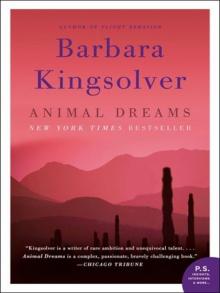 Animal Dreams: A Novel
Animal Dreams: A Novel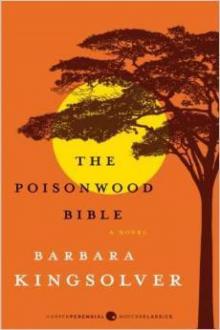 The Poisonwood Bible
The Poisonwood Bible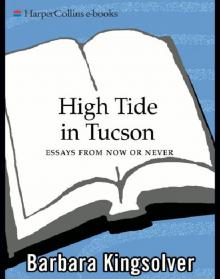 High Tide in Tucson
High Tide in Tucson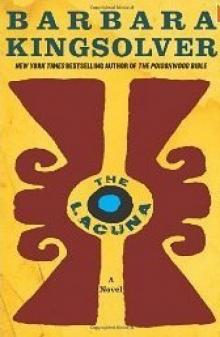 The Lacuna
The Lacuna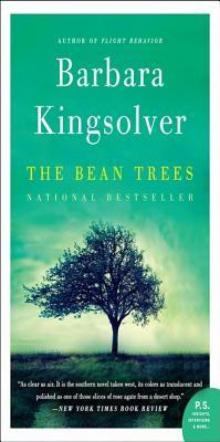 The Bean Trees
The Bean Trees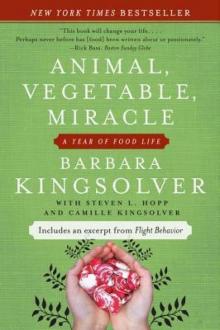 Animal, Vegetable, Miracle: A Year of Food Life
Animal, Vegetable, Miracle: A Year of Food Life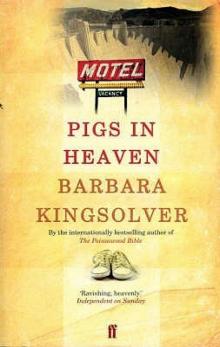 Pigs in Heaven
Pigs in Heaven Small Wonder
Small Wonder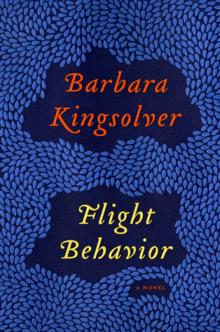 Flight Behavior
Flight Behavior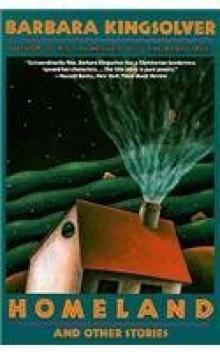 Homeland and Other Stories
Homeland and Other Stories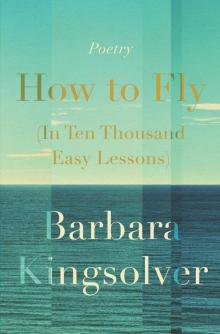 How to Fly (In Ten Thousand Easy Lessons)
How to Fly (In Ten Thousand Easy Lessons) Unsheltered
Unsheltered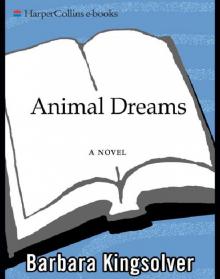 Animal Dreams
Animal Dreams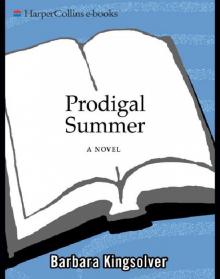 Prodigal Summer
Prodigal Summer Animal, Vegetable, Miracle
Animal, Vegetable, Miracle